Is your heat pump buzzing? Has the fan stopped turning? If you're wondering how to resolve these issues, keep reading. We researched these problems, and this is what we found out.
If your heat pump is buzzing and the fan is not turning, look for any large particles that would hinder the fan's movement. If you don't see any debris, give the blades a push and observe if the fan turns. Call an HVAC technician if the fan still fails to spin, as you may need to replace the fan.
In this post, we'll look at how to address these heat pump problems. We will also discuss choosing the right heat pump for your home and the maintenance that's required. So let's get started.
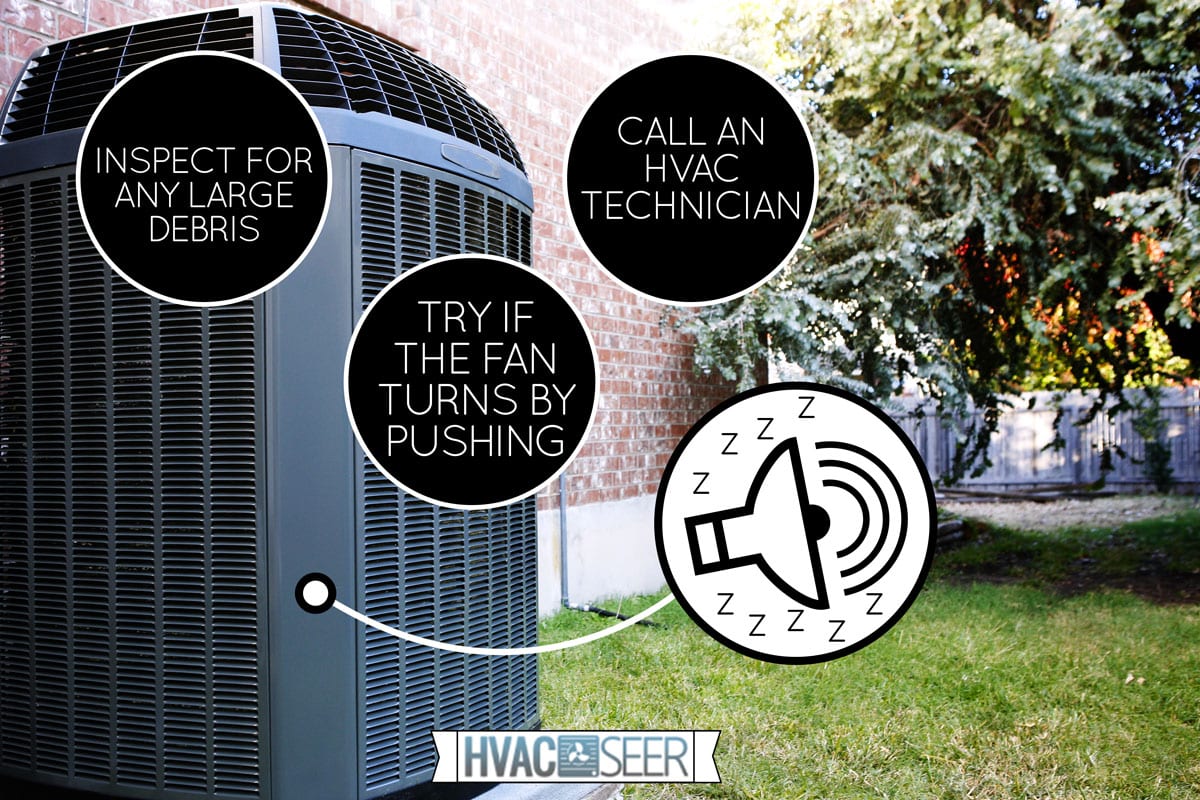
Diagnosing Heat Pump Problems
Although heat pumps produce some noise when in use, a buzzing sound is a cause for concern. This sound often indicates that a heat pump component, such as the fan, cannot move.
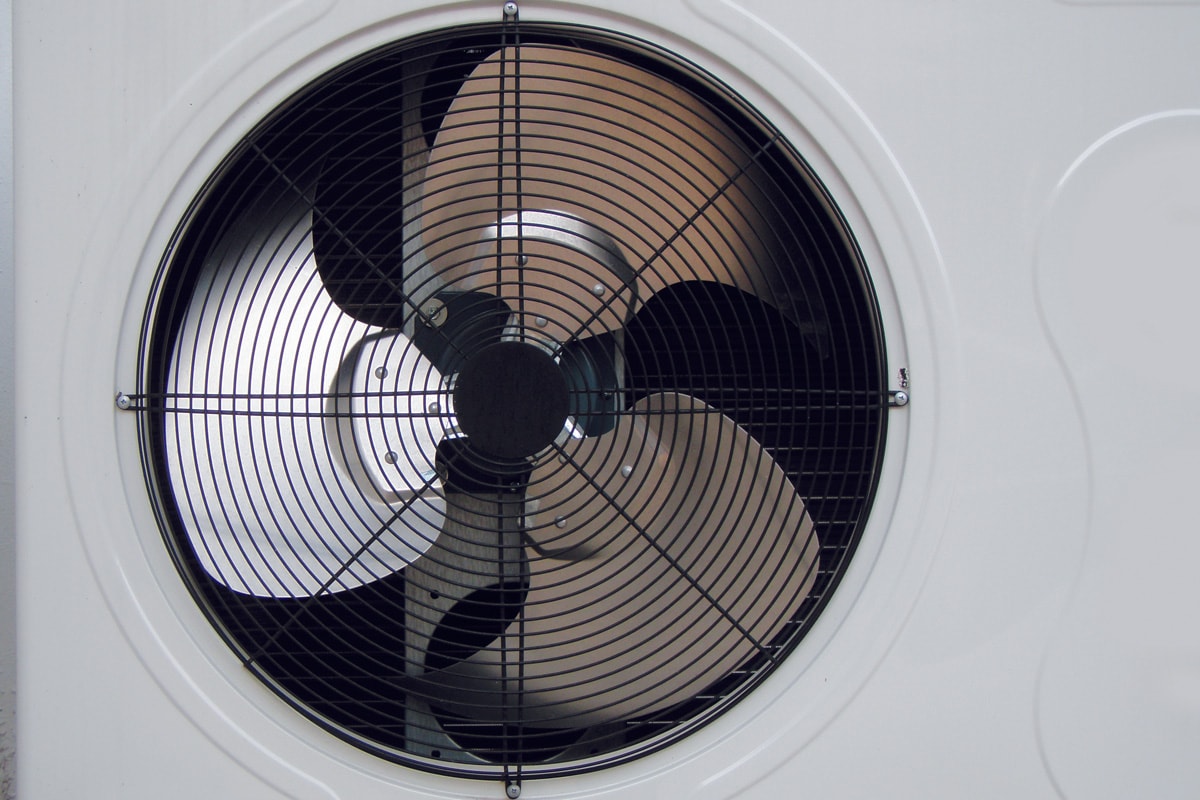
The fan expedites air circulation, enabling temperature regulation. Ideally, the fan spins until the indoor temperature matches the predetermined thermostat settings. It goes off when the home's indoor temperature reaches the desired level. At this point, the heat pump also goes off.
You should act promptly when your heat pump produces a buzzing sound. Continued use of a malfunctioning heat pump can increase the repair costs since other parts, like the compressor, become susceptible to damage.
Causes
These are some of the reasons why the fan may fail to spin.
Lodged Debris
The heat pump has an outdoor condenser unit and an indoor air handling unit. Sticks from a nearby tree, a bird's nest, or other large dirt particles may become stuck on the fan blades in the outdoor unit, impairing their movement.
Defective Fan Motor
The fan has a motor that powers the blades and enables them to turn. If the motor is malfunctioning, the fan may not rotate.
Remedies
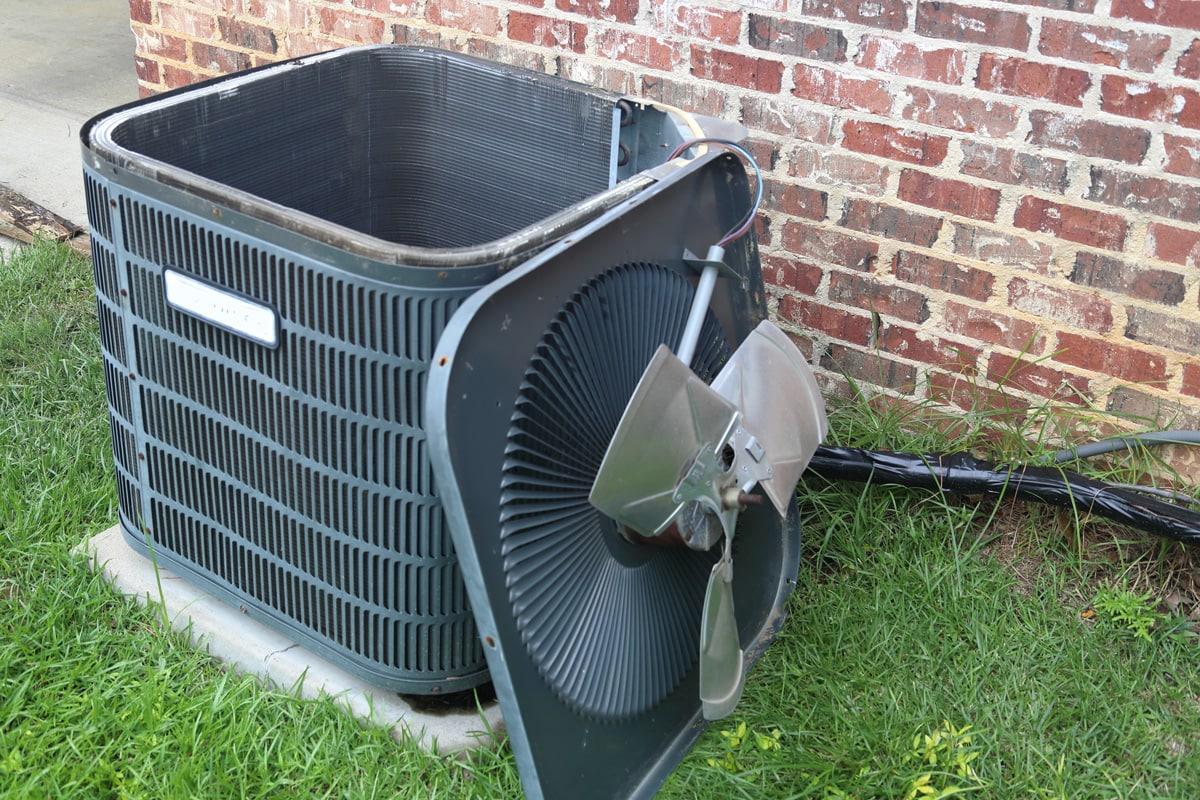
Look For Debris
Check the fan blades for any debris that could impair movement.
To remove unwanted debris from inside the air handler, proceed as follows:
- Disconnect the heat pump from the power source as a precautionary measure. Switching off the heat pump will prevent injury if the fan starts turning again once you get rid of the debris.
- Remove the heat pump's cabinet for easy access.
- Use a tool or a stick to dislodge the debris. Do not use your fingers to avoid accidentally cutting yourself.
- Replace the cabinet.
Give The Fan A Slight Push
If no unwanted elements hinder the fan's movement, you can use a stick to give the blades a slight push and observe if the blades start spinning. Do not nudge the blades with your fingers.
If the nudge resolves the problem, the fan's motor may be in the initial stages of failing. Therefore, it is best to plan a replacement as soon as possible.
Call An HVAC Professional
If none of the above remedies resolve the problem, call your local service center and schedule an appointment with an HVAC technician. The fan's motor or its capacitor may be dead.
A professional will have the right tools to diagnose your heat pump and resolve the problem quickly.
Picking The Right Heat Pump For Your Home
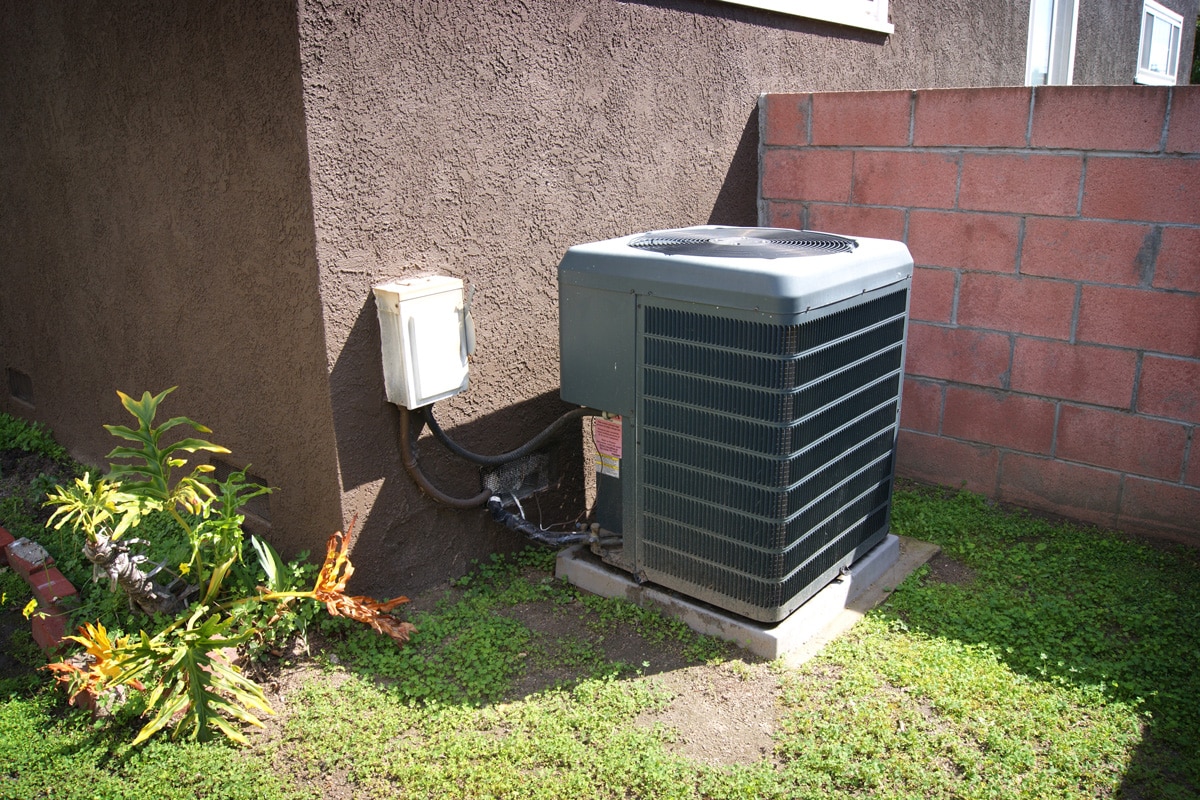
Heat pumps are environmentally friendly since they draw and move heat from the surrounding environment rather than burn fuel. They are also energy-efficient.
Heat pump technology is worth considering if you need to upgrade your HVAC system.
Is A Heat Pump System Suitable For Your Home?
Heat pumps are best suited for areas with moderate climates, where winter temperatures rarely fall below freezing.
But you can still install a heat pump and use it alongside heating devices like a furnace if you live in a location with harsh winters. This arrangement lets you switch to the alternative heating appliance when it is freezing.
By combining the heat pump and a heating appliance, you will have a more efficient HVAC system and also keep your home warm in the chilly weather.
Factors To Consider When Choosing A Heat Pump
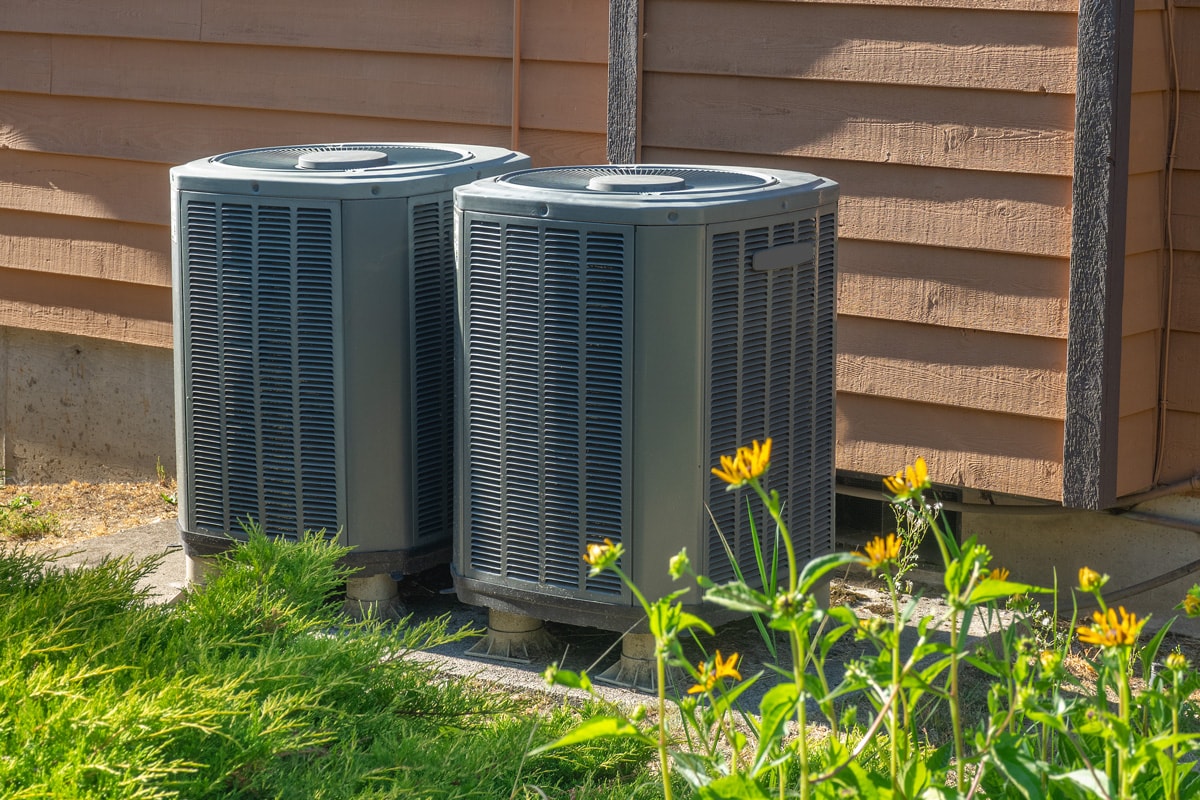
Capacity
You should get a heat pump that is the right size for your home. An undersized unit will struggle to maintain comfortable temperatures in your home.
In contrast, if you install an oversized heat pump, it may cycle more times than necessary, increasing the wear rate. A larger pump is also more expensive.
Ask a certified contractor to do a load calculation in line with recognized criteria to determine what heat pump size will work best for your home.
Efficiency Rating
Install a heat pump that uses the least energy to achieve your desired comfort level. Check the Heating Seasonal Performance Factor (HSPF) and the Seasonal Energy Efficiency Ratio (SEER) to pick an ideal appliance.
The HSPF measures the efficiency in heating mode, while SEER measures the efficiency in cooling mode. Even though there is no direct relationship between the two ratings, appliances with a high SEER rating also tend to have a high HSPF rating.
The higher the ratings, the more energy efficient the unit will be. You should consider the SEER rating if you live in a warm area and the HSPF rating if you live in a cold region.
Energy-efficient heat pumps may require a hefty initial investment, but their operating costs should be lower. In addition, these appliances may have more tax incentives than heat pumps that are less efficient.
Check out this article to learn more: What Is A Good SEER Rating For A Heat Pump?
Compressor Type
Generally, high-efficiency heat pumps have variable-speed compressors. Because the variable-speed compressor moves smaller amounts of heat, its energy consumption is lower than that of single-speed compressors, which quickly transfer a lot of heat.
The variable-speed compressor self-adjusts over time, maintaining suitable temperature and relative humidity levels in the home. As a result, the indoor temperature in your home remains relatively stable.
What Maintenance Does A Heat Pump Need?
Proper maintenance ensures the heat pump runs efficiently and operates optimally all year round.
Change Filters
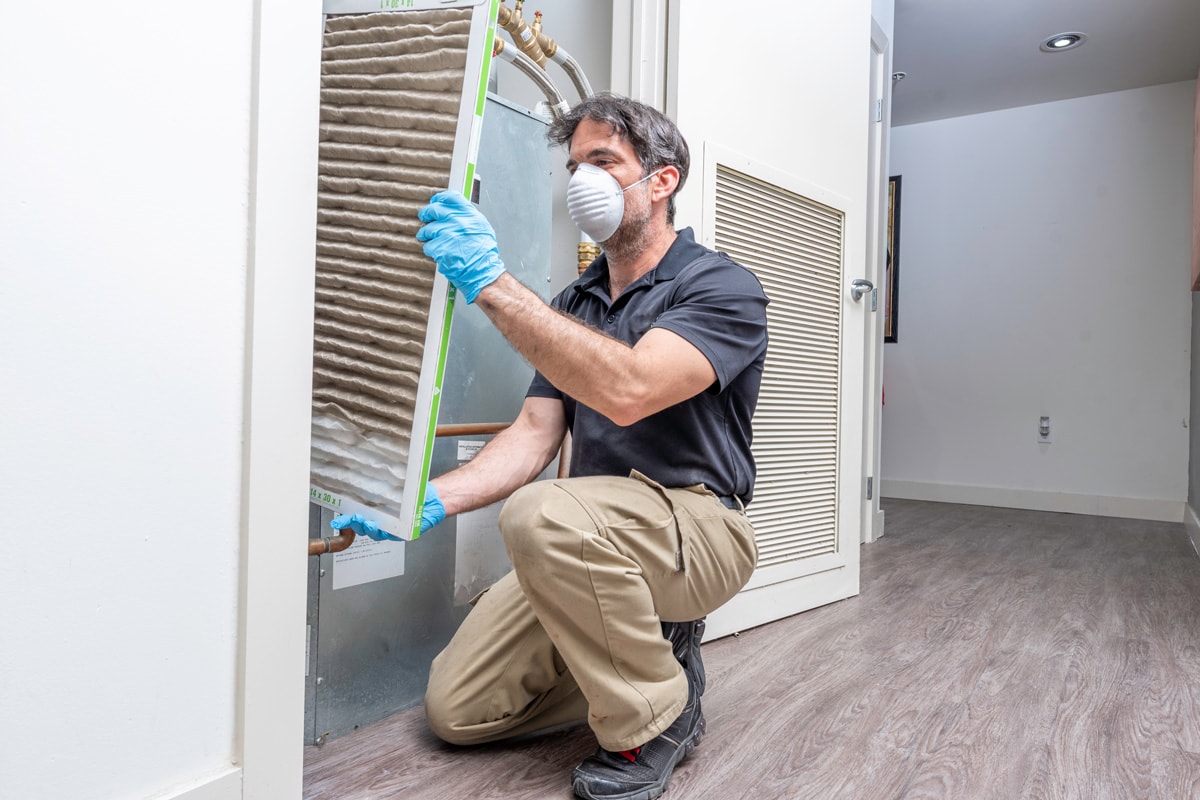
Filters trap dirt, dust, and other allergens and keep them from being released into the indoor air. The trapped dirt then builds up on the filter over time. If you let the dirt accumulate, it can constrict air circulation, forcing the heat pump to over-work to maintain comfortable temperatures in the home.
You should change the filters monthly to enhance the heat pump's operation. But the frequency may vary depending on the size of the home and the presence of pets.
Clear The Area Around The Outdoor Unit
Maintain adequate clearance around the condenser unit to enhance air circulation and minimize the possibility of debris lodging in your appliance and damaging it. Keeping the area around the heat pump clear helps with accessibility.
Poor air circulation exerts unnecessary pressure on the system, thus increasing its energy consumption. Additionally, ice may build up on the outdoor coils without proper airflow during winter.
Schedule Routine Maintenance Checks
Ask an HVAC technician to service your heat pump annually. During the routine visit, the professional can:
- Assess whether the thermostat is working correctly.
- Examine for duct leakage and repair it.
- Clean the coils.
- Test whether the refrigerant is leaking and recharge it.
- Lubricate motors.
- Examine heat pump components for wear.
- Scrutinize the condition of the drain pan holes and clean them.
- Check the condition and functionality of the electrical control.
In Closing
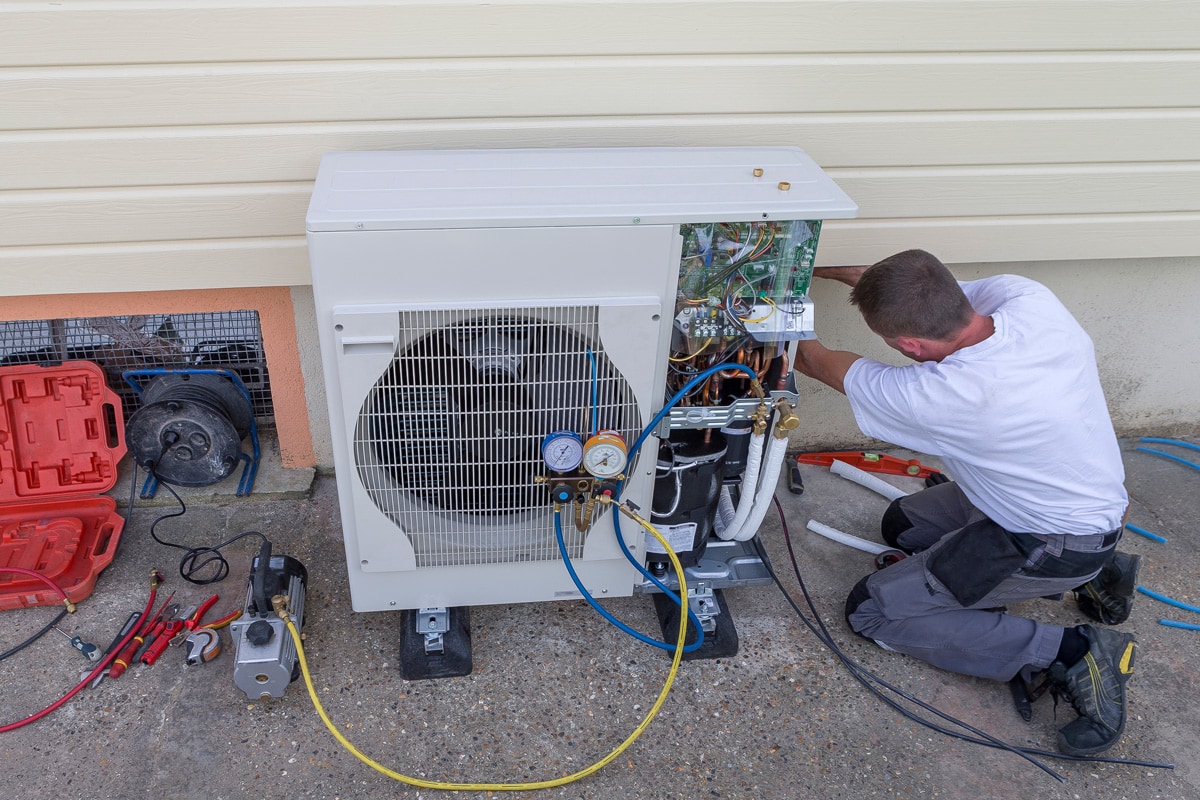
Restoring the proper functionality of a heat pump and fan can be as easy as removing debris. But a fan that is not spinning may have a failing motor and need to be checked out by technician.
Because a heat pump is a substantial investment, you should carefully assess whether the system will work for your home. Also, select the right size and opt for a high-efficiency pump to maximize savings on operational costs.
If you found this post helpful, please see our related article on heat pumps: Heat Pump Freezing Up In Winter – What To Do?
